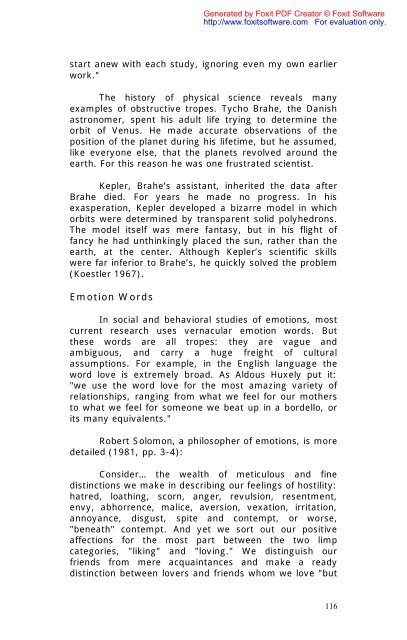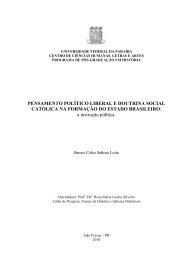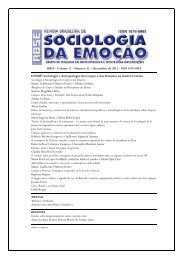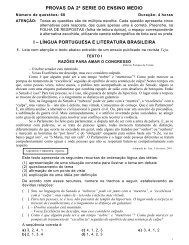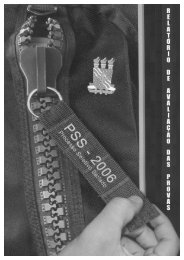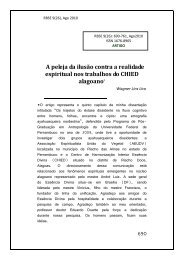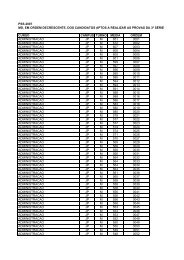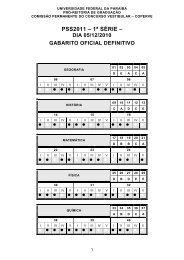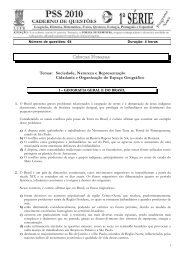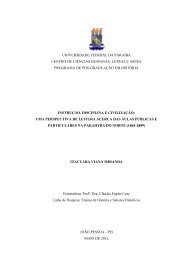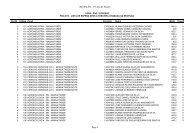abril de 2004 - CCHLA - Universidade Federal da ParaÃba
abril de 2004 - CCHLA - Universidade Federal da ParaÃba
abril de 2004 - CCHLA - Universidade Federal da ParaÃba
Create successful ePaper yourself
Turn your PDF publications into a flip-book with our unique Google optimized e-Paper software.
Generated by Foxit PDF Creator © Foxit Softwarehttp://www.foxitsoftware.com For evaluation only.start anew with each study, ignoring even my own earlierwork."The history of physical science reveals manyexamples of obstructive tropes. Tycho Brahe, the Danishastronomer, spent his adult life trying to <strong>de</strong>termine theorbit of Venus. He ma<strong>de</strong> accurate observations of theposition of the planet during his lifetime, but he assumed,like everyone else, that the planets revolved around theearth. For this reason he was one frustrated scientist.Kepler, Brahe’s assistant, inherited the <strong>da</strong>ta afterBrahe died. For years he ma<strong>de</strong> no progress. In hisexasperation, Kepler <strong>de</strong>veloped a bizarre mo<strong>de</strong>l in whichorbits were <strong>de</strong>termined by transparent solid polyhedrons.The mo<strong>de</strong>l itself was mere fantasy, but in his flight offancy he had unthinkingly placed the sun, rather than theearth, at the center. Although Kepler’s scientific skillswere far inferior to Brahe’s, he quickly solved the problem(Koestler 1967).Emotion WordsIn social and behavioral studies of emotions, mostcurrent research uses vernacular emotion words. Butthese words are all tropes: they are vague an<strong>da</strong>mbiguous, and carry a huge freight of culturalassumptions. For example, in the English language theword love is extremely broad. As Aldous Huxely put it:"we use the word love for the most amazing variety ofrelationships, ranging from what we feel for our mothersto what we feel for someone we beat up in a bor<strong>de</strong>llo, orits many equivalents."Robert Solomon, a philosopher of emotions, is more<strong>de</strong>tailed (1981, pp. 3-4):Consi<strong>de</strong>r… the wealth of meticulous and finedistinctions we make in <strong>de</strong>scribing our feelings of hostility:hatred, loathing, scorn, anger, revulsion, resentment,envy, abhorrence, malice, aversion, vexation, irritation,annoyance, disgust, spite and contempt, or worse,"beneath" contempt. And yet we sort out our positiveaffections for the most part between the two limpcategories, "liking" and "loving." We distinguish ourfriends from mere acquaintances and make a readydistinction between lovers and friends whom we love "but116


